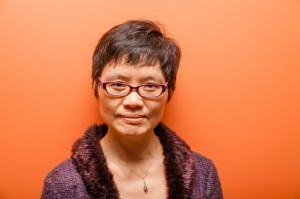Sarah Bigam, The Ubyssey, January 15, 2014– The B.C. Human Rights Tribunal has dismissed the complaint of a UBC education professor who says she was the victim of racial discrimination.
Jennifer Chan argued she was denied appointment to the David Lam Chair in Multicultural Education, which was granted to a white candidate, in part because she is Chinese-Canadian. The tribunal dismissed her complaint after four years of legal proceedings.
On Dec. 19, tribunal member Norman Trerise determined that, based on the evidence before him, the case had no reasonable chance of success at a hearing.
“There is really nothing to support that race, colour, ancestry or place of origin played a role in the outcome of the selection process,” Trerise wrote.
He determined that the decision likely came down to the differences between the hiring committee and Chan’s definitions of multiculturalism, since “breadth of representation of multicultural education” was a criterion for the position.
Chan asserts that five of the six members of the hiring committee were not experts in multiculturalism.
“It’s huge pity because if [Trerise] had moved the case to hearing, then obviously the crucial thing would have been to hear the experts in the field, which the hiring committee never did,” Chan said.
Chan first brought her complaint to UBC’s Equity Office in 2009 after being denied the position. The office ran an investigation and then dismissed the complaint, which led Chan to bring her case to the tribunal in May 2010.
“I was disappointed all along the way. I think one of the most disappointing things … would be the UBC Equity Office’s way of handling the whole thing.”
Chan alleges that the VP equity at the time, Tom Patch, had hired a friend of his to do the Equity Office review which dismissed her case.
UBC made multiple attempts to have the case dismissed, but in January 2012, the tribunal ruled that Chan’s case would go to a full hearing, which was originally scheduled for September 2013.
In March 2012, UBC applied to the B.C. Supreme Court for a judicial review of the complaint on the grounds that the case had already been dealt with by UBC’s investigation through the Equity Office. The Supreme Court ruled that the tribunal had not considered whether UBC has sufficiently dealt with the complaint and their decision not to dismiss the complaint “was based on a misapprehension of the evidence and on irrelevant factors.” The court directed the tribunal to reconsider its decision.
Chan asked for the tribunal to include in its reconsideration evidence that she had obtained after filing her original complaint, and UBC said it should not consider materials submitted after that point. The tribunal sided with UBC.
Chan said that, had the case gone to hearing, the additional information would have helped her case.
Chan has no plans to continue pursuing this case.
“In terms of the legal realm, it’s really over,” she said.
“Dr. Chan is a respected scholar and a valued member of the UBC Faculty of Education,” wrote UBC director of public affairs Lucie McNeill in an emailed statement. “UBC took her complaint very seriously and investigated her allegations thoroughly under the procedures set out in UBC’s policy on discrimination and harassment.
“The tribunal’s findings in December concur with our own, and that is gratifying.”
Although the complaint was dismissed, Trerise did decide that UBC’s Equity Office investigation was not a proceeding in the legal sense.
“There, we won, and it’s extremely important in the sense that even though this case is dismissed, this part … is going to set a legal precedent for future complaints,” Chan said.
Chan hopes that her case has drawn attention to greater structural issues. In August 2012, only eight per cent of 110 education faculty members belonged to a visible minority. Chan said inexperience in the legal realm, high legal fees and mental health issues caused by stress affected her and may impede others from who file similar complaints.
“We’re talking about a huge structural gap in the Canadian equity scene here. There’s no effective and efficient system for any equity complaint, and for me that is very serious. Canada tends to project this image: we’re a multicultural country, we take equity seriously. I walk through this process — no. This, for me, is a mirage.”
Read More: Ubyssey

 Follow
Follow